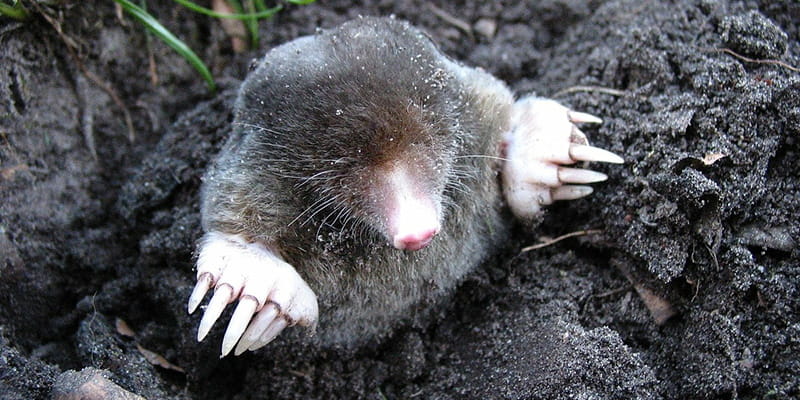Mole Control Services Throughout Connecticut
Call Today: 203-758-0555
Moles can damage lawns by digging networks of tunnels and mounds that can detract from a lawn’s appearance, disturb tree and plant roots, and provide travel lanes for other types of animals. Moles can move from one area of a property to another in response to changes in climate and ground moisture.
18 Feet Per Hour
Moles can dig surface tunnels at a rate of 18 feet per hour. They travel through existing tunnels at a speed of about 80 feet per minute. Moles have twice as much blood and hemoglobin as other animals of a similar size, which helps them breathe in underground areas with low levels of oxygen.
If they are disturbed, moles may temporarily leave an area, but they may come back. They often stay active in one area for just a week or two, even if they are not disturbed.
Six species of moles are native to North America. Moles can grow six to eight inches in length and weigh three to six ounces. Females give birth to two to six young per year from mid-April to May.
Moles Can Consume 45 to 50 Pounds of Insects Per Year
Moles eat insects and can control some insect outbreaks. A mole can consume 45 to 50 pounds of worms and insects per year. As different insects become active in different areas throughout the year, moles will make changes to ensure an adequate food supply.
Over-watering a lawn can draw invertebrates and moles closer to the surface and make tunnels more visible. You can help to protect your lawn from moles by watering it less frequently, reducing the amount of turfgrass, and converting lawn space to a garden, path, or hedgerows.
Most Home Remedies Do Not Work
Many home remedies that are recommended to get rid of moles are ineffective. The longer moles are allowed to dig their tunnels, the harder they will be to remove.
The best way to deal with a mole problem is to have them trapped and relocated. Trapping is generally most successful in the spring and fall, especially after it has rained. Moles are more active in deep soil and harder to locate in the summer and winter.
Anderson Wildlife Control is experienced in trapping and humanely relocating moles from properties in Connecticut. If moles are digging tunnels on your property, contact us today.


